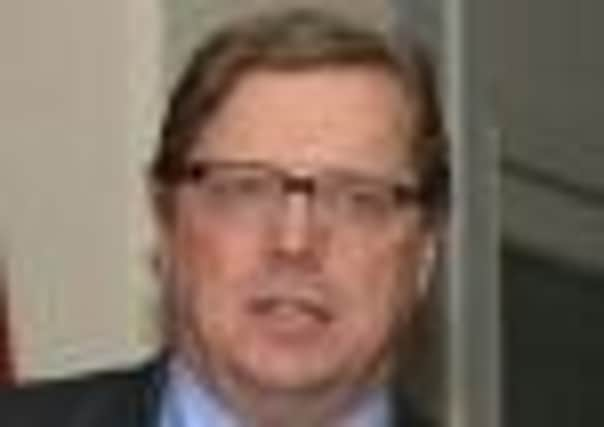Scotland a ‘dynamic world laboratory’ for independence debates, former US ambassador says


• Scotland’s place in the UK ‘uniquely intertwined’ with international community
• Rights of Scots as EU citizens won’t disappear with independence
Advertisement
Hide AdAdvertisement
Hide Ad• Scotland could ‘continue to play a role in the influential UN Security Council’ through UK’s permanent seat
• EU president Jose Manuel Barroso’s warning that Scotland would be forced to re-apply for membership ‘cast into doubt’ by Prof. Scheffer
Professor David Scheffer will also play down concerns about Scotland’s future membership of international bodies like the EU and UN after independence, insisting that “smart diplomacy” can resolve these issues.
He insists that Scotland’s place in the UK for the past 300 years means it is “uniquely intertwined” with the international community through a “wide range” of treaty deals and the rights of Scots as EU citizens won’t simply disappear with independence.
“Scotland is one of the most dynamic laboratories in the world for the modern expression of self determination and how it will be defined for the 21st Century,” Prof Scheffer will tell an audience at Glasgow University tomorrow night.
European President Jose Manuel Barroso’s recent warning that Scotland would find itself outside the EU after independence and forced to re-apply for membership, were also cast into doubt by Prof. Scheffer who said Scotland’s membership of the UN “should not be that difficult to accomplish.”
He added that Scotland could also continue to play a role in the influential UN security council through the UK’s permanent seat.
Scotland’s fate in international organisations is “deeply intertwined” with the UK because of the 300 year shared history.
Advertisement
Hide AdAdvertisement
Hide AdThe complex number and character of treaties in which the United Kingdom is a party “are such that determining the role of Scotland in those treaties as independence unfolds will be no easy formula,” according to Prof. Scheffer.
But he adds: “Every one of these tough issues, and so many more, can be resolved through a combination of smart diplomacy, particularly by Scotland, and political negotiations between Edinburgh and London and with the family of governments and institutions comprising the European Union, NATO, and the U.N. Security Council.”
Professor Scheffer was ambassador at large and for war crimes and a former advisor in the Clinton administration. He is now director of the Center for International Human Rights at Northwestern University School of Law in Chicago.